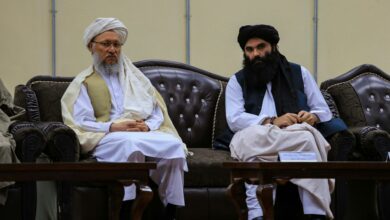Return of hunger at the center of Brazil’s presidential race

By Maria Angelica Troncoso
Rio de Janeiro, Sep 27 (EFE).- The 33 million people suffering from food insecurity have emerged as a campaign issue ahead of the Oct. 3 presidential election, yet many poor Brazilians see politics as far removed from their daily struggle for survival.
Polls show former President Luiz Inacio Lula da Silva, standard-bearer of the center-left Workers Party, with a substantial lead over right-wing incumbent Jair Bolsonaro.
Vera Lucia Lemos lives with her two daughters in a tiny, makeshift home next to an illegal dump in Rio de Janeiro’s impoverished Jardin Gramacho neighborhood, where the dirt roads turn to mud when it rains.
“We are forgotten,” she tells Efe. “We don’t have anyone who fights for us. Here it is everyone for him- or herself.”
Since the age of 10, Vera has eked out a precarious existence sifting through the refuse in the dump to find items that can be recycled, a job that she learned from her mother – and is determined not to pass on to her kids.
“The first thing I think about is my daughters’ needs,” she says.
On top of the 250 reais ($48) a week she earns from recycling, Lemos receives the equivalent of $116 a month from the government as aid, an amount she describes as insufficient.
Lemos says that she and her neighbors sometimes get donations of food, clothing and other necessities from Somos, a charitable organization that began helping homeless people in Rio during the pandemic.
But Somos is struggling to find supporters for its work.
A third of Brazil’s 213 million people are below the official poverty line, while more than 33 million residents suffer from hunger, according to recent independent studies.
Lula, 76, blames Bolsonaro for those daunting figures and reminds voters that 30 million Brazilians climbed out of poverty during his 2003-2011 tenure as president.
Bolsonaro, meanwhile, attributes the economic problems to the “corruption” that he claims flourished under Lula.
Last month, the president’s allies in Congress pushed through a constitutional amendment that allowed Bolsonaro to increase public assistance payments by 50 percent.
The constitution had prohibited boosting benefits during a presidential election year.
Even so, the increase was directed only to families with monthly incomes of less than 105 reais ($20.50), the official threshold for “extreme poverty,” and the 63 million people subsisting on less than $97 a month got nothing extra.
In 2006, the first year of the Gallup World Poll to gauge the extent of hunger, 20 percent of Brazilian families said they were struggling to put food on the table.
By 2014, the incidence of food insecurity in the giant South American country had declined to 14 percent and Brazil was removed from the United Nations World Hunger Map.
Four years later, Brazil was back on the UN’s map, with hunger at levels last seen in 1990. EFE mat/dr





